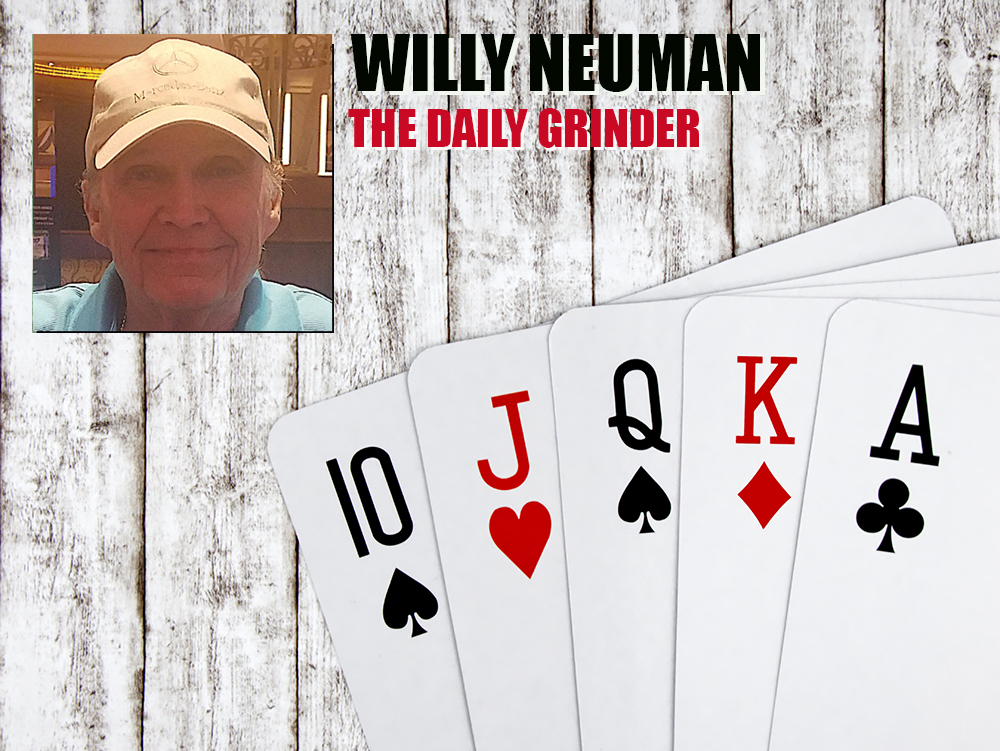Let’s take a look at a hand I was dealt recently. Normally, I don’t write about individual hands. Why? Out of 10 players, there could be two or three who’ll disagree with my reasoning because there’s more than one way to play a hand.
But this was an amazingly interesting hand and there are at least a couple of things that can be taken away from the situation, especially since I chose not to play the hand.
I was dealt 7S-10S on the button. One person called and another raised. I wasn’t planning to call, but I thought for a moment and realized this player had been raising a lot, which meant he could’ve had less than a premium holding.
Maybe I had close to as good a hand as he had, which might justify a call.
But my next thought was that there were still three players who had to decide to fold, call or reraise, and certainly it was likely a couple or possibly all of them had better hands.
I thought “Seven-10, really? How could I possibly consider calling?” I mucked and right after that, I took just a tiny fraction of a second to mentally confirm I had made the correct decision.
Then came the flop: 3S-8S-9S. I would’ve flopped a flush with an open-end straight-flush draw. There were three players in the hand and the initial raiser bet and both players called. A pretty good size pot was developing.
You guessed it; the turn was the 6S, a straight flush. How often do you see one of those?
Now, here’s the bottom line: I spent less than a second lamenting the fact that I wasn’t still holding my cards. After that brief diversion from reality, I again mentally reaffirmed I was glad I had made the right play.
This is an excellent example of what happens in the poker room several times every session: an opportunity to let circumstances mess with your mind or a chance to realize what happens after you make the right decision is irrelevant.
It’s important to think this way, because the alternative involves being distracted for the next 10 minutes by what might have been.
Or, worse yet, it might affect what decision you make the next time you are presented with a similar situation.
— Willy Neuman divides plays at Hollywood Casino in Aurora, Ill., and Talking Stick in Scottsdale, Ariz. Email editor@anteupmagazine.com.



